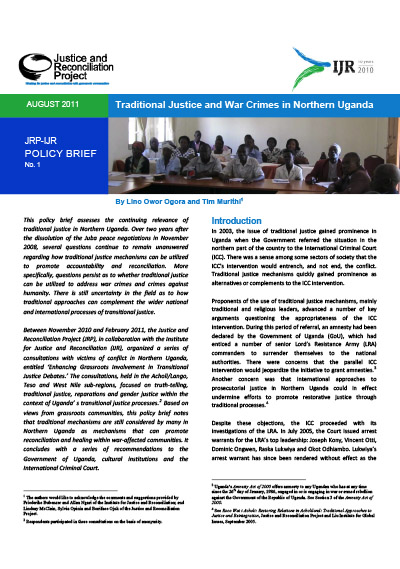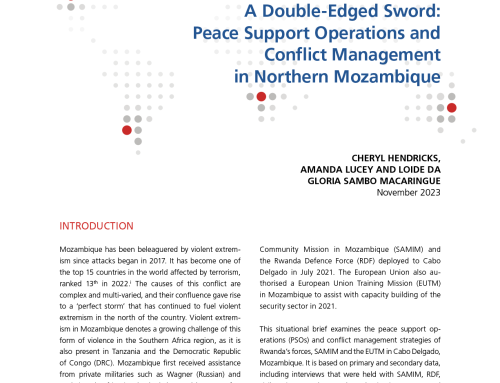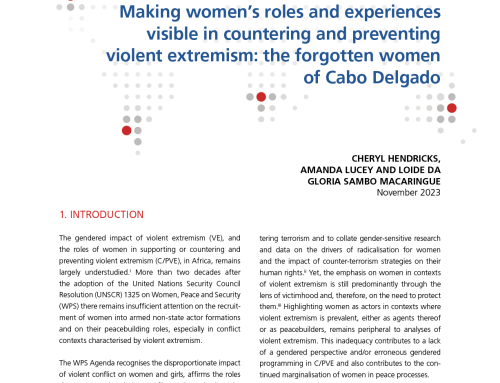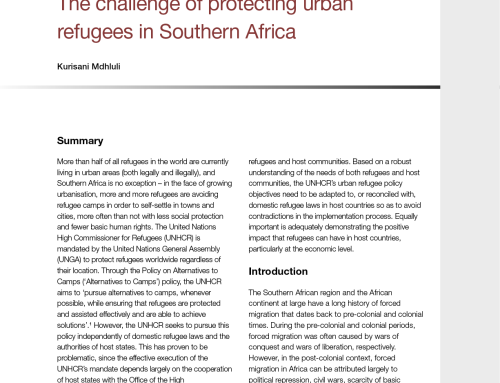
Traditional Justice and War Crimes in Northern Uganda
This policy brief assesses the continuing relevance of traditional justice in Northern Uganda. Over two years after the dissolution of the Juba peace negotiations in November 2008, several questions continue to remain unanswered regarding how traditional justice mechanisms can be utilized to promote accountability and reconciliation. More specifically, questions persist as to whether traditional justice can be utilized to address war crimes and crimes against humanity. There is still uncertainty in the field as to how traditional approaches can complement the wider national and international processes of transitional justice.
Between November 2010 and February 2011, the Justice and Reconciliation Project (JRP), in collaboration with the Institute for Justice and Reconciliation (IJR), organized a series of consultations with victims of conflict in Northern Uganda, entitled ‘Enhancing Grassroots Involvement in Transitional Justice Debates.’ The consultations, held in the Acholi/Lango, Teso and West Nile sub‐regions, focused on truth‐telling, traditional justice, reparations and gender justice within the context of Uganda’ s transitional justice processes. Based on views from grassroots communities, this policy brief notes that traditional mechanisms are still considered by many in Northern Uganda as mechanisms that can promote reconciliation and healing within war‐affected communities. It concludes with a series of recommendations to the Government of Uganda, cultural institutions and the International Criminal Court.
By: Lino Owor Ogora and Tim Murithi
Pages: 8
Dimensions: A4
Date of publication: 2011




